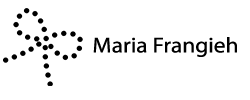After 15 years of civil war, the Lebanese economy suffered from large public debt, low growth, inflationary pressures, low investments to name just a few of the repercussions.
Where are we Today?
Stabilizing the economy is of crucial importance, especially in a highly competitive world, a highly precarious political situation in the region and financial crises. Obviously the current efforts are not in the right place; maybe the factors that are considered as the causes of this unstable economy are not the correct ones. A more general look might shed the light on some disregarded factors. Or maybe adopting new policies could help resolve some of the problems we are facing.
Privatization or IPO?
We have always heard talk of privatization and how it could save the Lebanese economy from our large public debt. Privatization could help raise a sum of capital that is desperately needed by the Lebanese government to develop the infrastructure of the country amongst other necessities. It is commonly known that privatization allows a better management of the organizations as opposed to the publicly held organizations which are very bureaucratic. Some problems with privatization are the current unstable economic and political situations which make Lebanese investments unattractive. Another approach to privatization can always be considered: It is the process of transferring the ownership of an organization from the public sector to the private sector. Initial Public offering (IPO) is the first sale of stock by the company to the public. It allows companies to raise the capital it needs from the public instead of taking bank loans and without losing ownership of the organization.
The benefits of an offering and being a public company are the potential to raise capital and provide liquidity for current investors along with future access to financial markets and attractive currency to acquisition targets. The initial public offering is characterized by its capital that is raised from investors. The costs of offering and being a public company are reduced flexibility, disclosure of obligations, increased risk of legal exposure, time and expense to complete the offering, and long term costs. Taking a decision to pursue an initial public offering is difficult; the company must assess truthfully its own capacities while considering the benefits and costs of the totality of alternatives of such an action.
Let’s assume that the Lebanese government decided to go public in the case of Electricité du Liban (EDL) rather than privatizing. Why would that be a good suggestion? Assume that you, a Lebanese citizen, decided to buy the stocks offered. You can personally own a share; therefore you will encourage as much company efficiency as possible. A basic example: Each time you turn on a light at your home or office, you’ll be consuming energy and adding costs to the company. When you own stock in that company, you’ll automatically go the extra mile and introduce cost-cutting measures like minimizing electricity usage. In an indirect way, you are contributing to decreasing company costs thereby leading to a more efficient company, not to mention lowering pollution levels. A major benefit is that financial statements of the company will be available to the public decreasing red tape and corruption. The government will have fewer expenses. Better management practices will have to be put in place to attract further capital, and the government will always have financial resources flowing into the treasury.
WTO or no WTO?
The free trade policy that the government is enforcing is supposed to lead to sustainable development according to the recommendations of the UN Reports. Ever since 1999, Lebanon is in the process of accessing the World Trade Organization (WTO) which promotes free trade between nations. Unfortunately, being a member of the WTO is a double-edged sword. The country will be able to access more markets, but its production will be under higher competitive pressures than today. Let’s take for example the Lebanese agricultural sector: A few things that come to mind when we think on this are the farmers throwing out their crops when they were unable to sell, crops destroyed by weather changes, coupled with no governmental action since the country is under a large public debt and there is a lack of liquidity. Surprisingly, most of the food we’re eating is coming from Western countries, where the standards of living and the costs of production are much higher than ours.
Why? Farmers of Western countries receive agricultural subsidies from their governments, and these same countries are members of the WTO. So what to do in Lebanon’s case? Let’s face it, the government cannot afford to subsidize the farmers, but there are always other alternatives! Why are we eager to become a member of the WTO when we do not have anything competitive to offer to the world? We can’t even compete with the current markets that we are accessing! So why don’t we impose customs duties on the imports that compete with our local production, any production! Why should we destroy our own production and encourage the Lebanese customers to purchase imported goods? Who says that the imported goods are cheaper? Or even of better quality? How about we begin with the agricultural sector, let’s protect it for some time, allow the farmers to have profits and reinvest in the sector, and when the sector becomes ready for international competition we can remove the protection and allow free trade. Isn’t this what most of the largest countries with sustainable economies did before adopting free trade?
We must admit that the Lebanese economy is in deep trouble. But there are always available opportunities that have yet to be seized. Why don’t we reconsider our current assets and liabilities, and reassess our situation? Reconsidering our planned policies for a better economy is not a signal of weakness, on the contrary, it might provide a positive signal for investors and encourage them to reinvest their much needed funds in our economy.
In RAGMAG, Issue 22, March 2012
Feel free to drop me a comment below or join me on Facebook, Twitter, Pinterest, LinkedIn or Instagram, I look forward to hearing from you.






